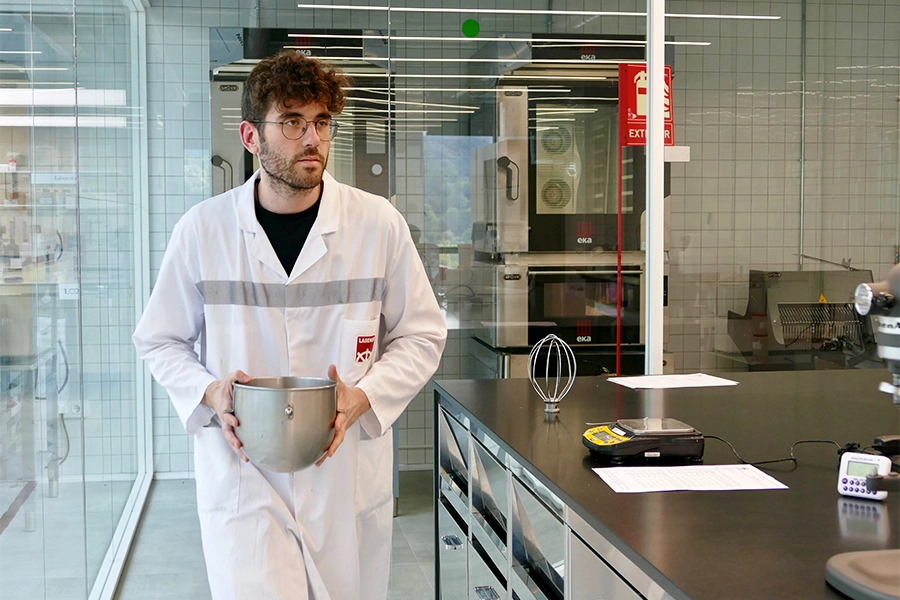

Research aims to make plant-based diets work for everyone
Making plant-based diets a realistic and enjoyable option for all is the goal of a new project that aims to promote healthy diets that are environmentally sustainable.
A multidisciplinary team of scientists at the Universities of Aberdeen, Glasgow and Oxford has received a £940,000 (US$1.14 million) award from the Wellcome Trust for the three-year project investigating the potential of plant-based convenience foods in encouraging healthy, climate-friendly diets that are affordable, practical and compatible with modern lifestyles.
By taking a ‘big picture’ view of the complex driving forces behind dietary choices – including social and practical considerations – the team aims to come up with realistic options for plant-based diets that remove barriers to adoption.
The study will work with groups of young women to understand the complexities of their lives and how this dictates their diets, developing real-life scenarios to create compatible advice that encourages plant-based choices.
Professor Jennie Macdiarmid, the University’s Interdisciplinary Director for Health, Nutrition & Wellbeing, is leading the project. “Action needs to be taken to tackle climate change," she said. "Transitioning toward climate-friendly diets requires people to reduce meat consumption and increase plant-based food, as meat has a high carbon footprint, which contributes significantly to global warming.
“While there is a growing trend toward plant-based diets, we know that changing diets is notoriously hard which presents a barrier to meaningful change.
“So, the question we have to ask ourselves is how can we make healthy and climate-friendly diets that are appealing, practical and affordable therefore giving them a good chance of success?
“The strength of this project is that we are working with scientists from multiple disciplines including health and nutrition, climate science, psychology, social policy, and the creative arts to build healthy diets that consider the impact on the planet and health, and have broad appeal.
“This interdisciplinary approach is essential, as we have to look at the big picture instead of taking a one-dimensional view of the issue.”
Professor Ele Belfiore, the University’s Interdisciplinary Director for Social Inclusion & Cultural Diversity, will lead on policy and the creation of compelling visuals and narratives to act as a tool for policymakers responsible for communicating advice about healthy and climate-friendly diets.
She said: “This project offers an exciting interdisciplinary opportunity by combining rigorous research with creative research methods to communicate findings. Our ambition is to use creative tools to co-produce fresh policy thinking that truly reflects and responds to how people make food decisions in their everyday lives.”
Professor Pete Smith, Professor of Soils and Global Change at the University, added: “Food is responsible for over a third of all human greenhouse gas emissions and what we eat needs to change.
“Changing diets is really hard, but this project will aim to design meals and diets developed by young women that are better for health and the planet as well as delicious and affordable.”
Dr Esther Papies, a Reader in Behaviour Change from the University of Glasgow, will lead the work to determine the appeal of plant-based foods and dietary decisions made by young women. “I’m tremendously excited about this project because it recognizes that a main driver of what people eat is enjoying the food, which is so often left out of healthy and sustainable diets," she said. "It also acknowledges that good food needs to be practical and affordable. Being realistic about real-life food choices will help us support policy that allows people to eat better and to really enjoy it.”
Dr Michael Clark, a Senior Researcher in Sustainable Food with expertise in effects of dietary choices on environmental sustainability and human health from the University of Oxford, Smith School of Enterprise and the Environment, added: “I am excited to contribute to this project that explores the interactions between culture, health, economics, and environment. Food and diets are a complex topic, and addressing the challenge of ensuring acceptable, affordable, tasty, and sustainable diets requires a holistic approach informed by real-life choices.”
If you have any questions or would like to get in touch with us, please email info@futureofproteinproduction.com






